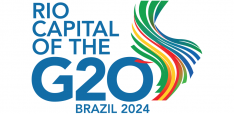The Case for Truly Neutral Humanitarian Financing

Humanitarian funding is skewed by political bias and must recover a credible sense of neutrality to address massive humanitarian needs. To achieve this, Liana Ghukasyan calls on governments to live up to their Good Humanitarian Donorship commitments and take action to ensure aid reaches those who need it most, regardless of geopolitical interests.
Sources of Bias
The debate that the humanitarian action should be neutral, ensuring that aid reaches those in need regardless of political affiliations, race, or religion is not new. While the principle of neutrality is often emphasized in on-the-ground humanitarian efforts, the critical aspect of humanitarian financing receives comparatively less scrutiny. The current state of humanitarian financing, influenced by political and strategic considerations, undermines the fundamental principles of humanitarian action.
To genuinely uphold the ethos of humanitarianism, it is imperative that the financing of humanitarian aid is as neutral as the actions it supports. Neutral humanitarian financing means funds are allocated strictly based on the severity of needs and the urgency of the situation, without being influenced by the geopolitical interests of donor countries. Yet, in practice, humanitarian aid often remains a tool of foreign policy, swayed by the strategic interests of powerful nations.
Humanitarian financing typically comes from a diverse array of sources: governments, international organizations, non-governmental organizations (NGOs), private sector entities, and individual donors. Each of these sources has its own motivations, which can sometimes conflict with the principle of neutrality. Governments, which provide largest portion of humanitarian financing, might tie their financial contributions to specific political objectives, influencing the allocation of aid to align with their strategic interests. As a result, some crises are overfunded while others are neglected based on political expediency rather than humanitarian need.
Private sector contributions, while invaluable, can also introduce biases. Corporations might prioritize funding initiatives that enhance their public image or align with their corporate social responsibility goals. While this is not inherently negative, it can lead to a focus on more visible, short-term projects rather than long-term, less visible needs. Furthermore, the influence of large donors can sometimes steer the agenda of humanitarian organizations, subtly or overtly pressuring them to prioritize certain areas or issues.
Geopolitically key conflicts or disasters that receive substantial media coverage, consequently, receive more funding. In contrast, protracted and less-publicized crises, sometimes referred to as “forgotten crises,” suffer from chronic underfunding.
Commitment to Effective and Efficient Humanitarian Aid
The 2003 Principles and Good Practice of Humanitarian Donorship (GHD) set out a framework to ensure that humanitarian funding is allocated based on needs, rather than political, strategic, or military considerations. Despite these guidelines, the disparity in funding allocation for different crises around the world reveals a stark disconnect between humanitarian principles and practice.
A glaring example of this disconnect is the response to the crises in Ukraine and Gaza versus those in Sudan, the Democratic Republic of Congo (DRC), and Yemen. The international community’s response to the crises in Ukraine and Gaza has been overwhelmingly positive, with funding levels approaching overfunding. In contrast, the crises in Sudan, DRC, and Yemen, marked by severe food insecurity, displacement, and conflict, have consistently seen low levels of funding. The underfunding of these appeals signifies a gross imbalance, as these crises often lack the political visibility and strategic interest that attract donor generosity.
It is true that the overwhelming support for Ukraine is driven by the proximity and political alliances of Western donors. The same could be applied for the crisis in Gaza. This practice underscores a deeper issue- the instrumentalization of humanitarian aid for political gain that not only jeopardizes the lives of those in less geopolitically significant regions but also erodes the credibility of the international humanitarian system.
The Solution: Three Essential Steps
To move towards genuinely neutral humanitarian financing, several steps are necessary:
First, strengthen transparency in allocations. Donor governments should increase transparency regarding how funding decisions are made. This includes publicly available data on funding allocations, needs assessments, and the rationale behind funding decisions. Humanitarian organizations should disclose their criteria used for allocating aid. This transparency would help build trust and allow for greater accountability. Independent audits and evaluations can further ensure that funds are used appropriately and that allocations are made based on need rather than influence.
Second, provide more flexible financing. Traditional funding often comes with restrictions that tie aid to specific projects or regions. While this can ensure accountability to donors, it can also limit the ability of humanitarian organizations to respond swiftly and effectively to emerging needs. Flexible financing allows organizations to prioritize aid delivery based on real-time assessments of needs and urgency, rather than pre-determined criteria. Flexible funds can help humanitarian organizations avoid the difficult decisions of prioritizing one crisis over another.
Third, establish a global fund that could pool resources from various donors. This fund would allocate resources based on impartial assessments of need, rather than donor preferences. This model would help mitigate the influence of individual donor agendas, ensure a more equitable distribution of aid and better coordination of efforts of humanitarian actors. While this might seem a bureaucratic nightmare, there are already successful examples of funds of this nature, – such as IFRC DREF, OCHA CERF, and the Global Fund to fight AIDS, Tuberculosis and Malaria– that can serve as the basis for the development of a Global Humanitarian Fund.
Neutral humanitarian financing is not just a theoretical ideal but a practical necessity for addressing global humanitarian needs effectively and equitably. By committing to truly needs-based funding, the international community can ensure that all people in crisis receive the support they desperately need, regardless of where they are or the geopolitical significance of their plight.
Liana Ghukasyan is Special Advisor to IFRC President, former Deputy Permanent Observer to the UN in New York.
Photo by Pixabay
This first appeared on the Solferino Acemedy blog.

